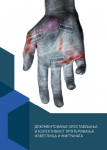Donor: USAID
Duration: January 7th, 2019 – January 6th, 2022
Project Leader: Lawyers’ Committee for Human Rights – YUCOM
About the project
The overall objective of the USAID supported „Constituencies for Judicial Reform in Serbia“ project, is to strengthen citizens’ confidence in the work of judicial institutions in the Republic of Serbia by improving communication between the citizens and the judiciary.
The Project is implemented by a coalition of 12 organizations engaged in human rights and the development of democracy, as well as professional judicial associations:
- Lawyers’ Committee for Human Rights (YUCOM);
- European Policy Centre (CEP);
- Association of Public Prosecutors and Deputy Public Prosecutors in Serbia;
- The Network of the Committee for Human Rights in Serbia (CHRIS Network);
- Judges’ Association of Serbia;
- Transparency Serbia;
- Belgrade Centre for Security Policy (BCSP);
- Partners for Democratic Change Serbia (Partners Serbia);
- Belgrade Centre for Human Rights,
- Judicial Research Center (CEPRIS);
- National Parliament Leskovac;
- Forum of Judges of Serbia.
One of the three main goals that the project aims to achieve is to establish proactive relationship between the representatives of the judiciary and the citizens and their better acquaintance with the system itself, which would help citizens to better meet and understand their rights, as well as how to reach them. The project aims to establish this type of relationship through several channels of communication with citizens, which have been adapted to the different social structure of the population, age and education level. This includes communication through a digital platform, digital media and blog posts, as well as through local councils in 15 cities and municipalities in Serbia. Led by the spirit of developed democracies, the project wants to adopt the principle of open dialogue between citizens and the judiciary, and to encourage their greater engagement in local communities. The task of the project is to help citizens to understand their rights, guaranteed by the Constitution, and also to inform citizens how the judicial system works and how judges and prosecutors make fair and rational decisions.
The second goal of the project involves organizations to work on researching and detecting the primary needs of citizens in their everyday practice with the judiciary in Serbia. This activity will try to understand and investigate citizens’ reasons for low level of trust in the judicial system, widely monitoring citizens’ experiences in meeting with the judiciary. As a result of this activity, the coalition on the project will create three comprehensive reports that would serve as a mean of further public policies formulation that support citizens’ needs.
The last goal of the project is to raise the accountability and integrity of judicial institutions. The project aims to work with judicial and civil society stakeholders to enhance the integrity and accountability of judicial institutions through an improved methodology of integrity plans and an open procedure for appeals and free citizens’ complaints, making them more transparent, more accessible and engaging citizens themselves.








